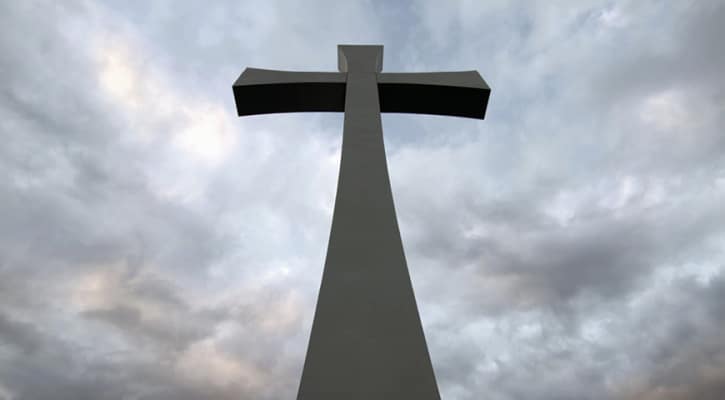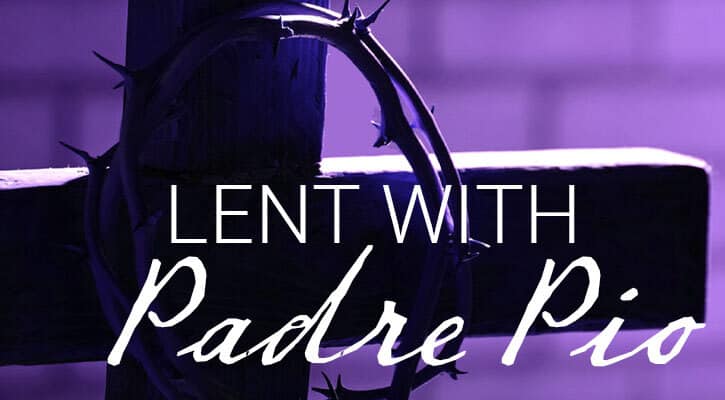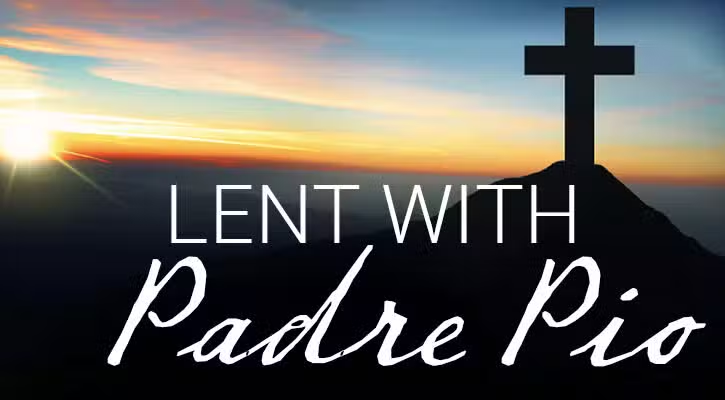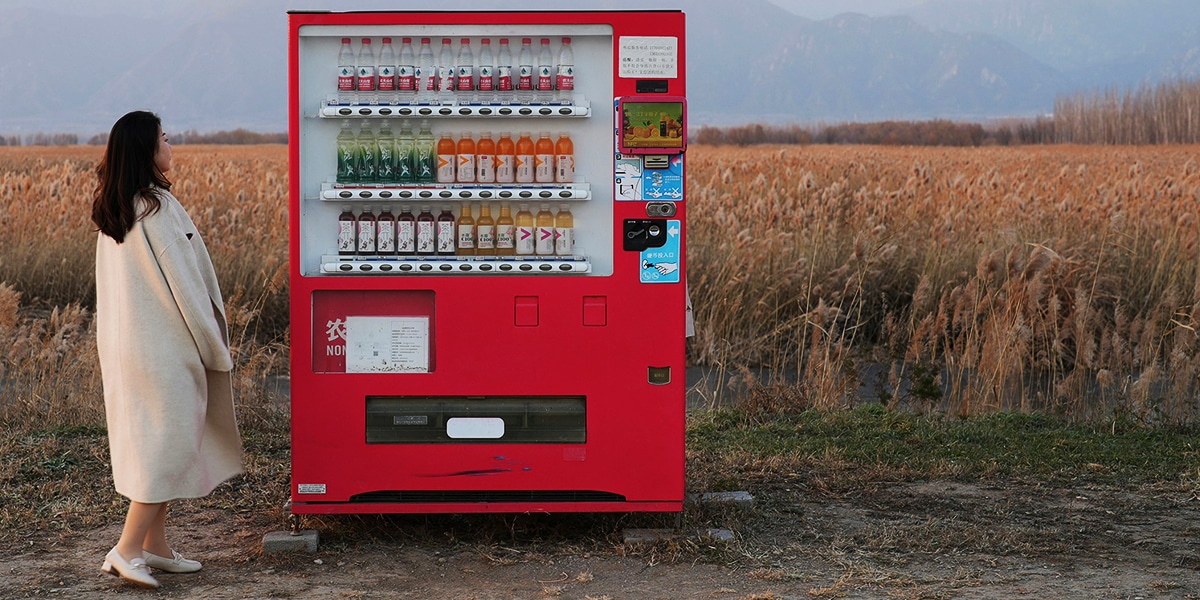One of the most common Christian prayers shows us the way to spiritual transformation and profound connection with God and each other.
“Prayer always transforms reality, always. If things around us do not change, at least we change; our heart changes,” said Pope Francis at a general audience on January 9, 2019. During his audience that day, the pope broke open Jesus’ teachings about prayer. I was not in the audience, but I read the text of his speech later and was reminded of the importance of the Our Father, one of the most common prayers of our faith.
When Jesus’ disciples asked him how to pray, he taught them the Our Father. With this gift to all of us, Jesus provided a pathway to God and a way to be formed in friendship and love.
If you are a lifelong Christian as I am, you have probably prayed the Our Father countless times and for many reasons. When I visit my memories, I see a variety of settings, ranging from the privacy of my bedroom to the celebration of holy Mass with thousands of other people. No matter where my memories take me, I am warmed with gladness.
Our Father, who art in heaven, hallowed be thy name.
Near the heat of happy campfires and around tables full of steaming food, in jails and classrooms where I was available to serve, and in simple chapels and enormous basilicas with pillars larger than trees: In each of these spaces I prayed the prayer that Jesus taught. As I did, I acknowledged God’s presence; I offered reverence to God’s awesome name.
Thy kingdom come; thy will be done on earth as it is in heaven.
God’s reign is known in the flourishing of peace and justice in every person and part of God’s creation, when each element made to show God’s goodness is honored and respected. I have felt the order that God established when I prayed holding the sweaty palms of strangers, and as I ached from the tight grip of my big brother. I felt God’s eternal love as I prayed in the quiet of my bedroom and amid the commotion of busy streets.
Give us this day our daily bread
I have acknowledged my dependence on God in droughts and floods. I have named my need for love and food and water and air. I have asked God for help when I have felt overwhelmed and exhausted. I have felt the power of God’s designs, how I am interdependent and am made to be part of a community—just like everyone else. I have grown to understand that God expects me to share my bread and graciously receive the gifts others offer me. The words I pray teach me to trust that I will be OK, that God will provide.
And forgive us our trespasses, as we forgive those who trespass against us
Each time I have prayed the prayer that Jesus incorporated into his Sermon on the Mount, I have admitted that I am a sinner. I am imperfect. I am weak. I flail through my life, bumping into others with my reactions and selfishness. Each time I snap at someone or do something unkind, I am wounding my brothers and sisters in Christ; I am breaking our bonds. Each time I give my attachments more devotion than my prayer or fail to love as Jesus did, I am worshipping idols and sinning against God. Whenever I pray the Our Father, I admit my need for God’s mercy. I have said yes to the call to imitate God’s mercy when I forgive others for the pain they cause too.
And lead us not into temptation, but deliver us from evil.
Although I know my sinfulness, admitting I am weak is not enough. I must also turn away from temptation, from the sneaky lure of putting pleasure before sacrifice, from any darkness that dims the glow of God’s light in me. Again and again, I pray that God protects me, that God’s love shields me from anything that would prevent me from living as a child of the light. Only with God’s grace can I know true freedom and deliverance. With that freedom comes an invitation to cooperate, to keep my gaze on Christ, and to steer my feet away from fear and despair.
For thine is the kingdom, the power, and the glory forever.
From my non-Catholic friends, I have learned to put these words at the end of my prayer. Even though it’s not biblical, I don’t want evil to be the last word anytime I pray. As I include these words in the Our Father, I am praying that the unity found in the Trinity will also be felt in the Christian community, in the people of God—no matter their denomination or Church home.
God’s kingdom is beyond the borders that humans have made. God’s power and glory are bigger than the limits of the lines we’ve drawn. Each time I have prayed the Our Father with Lutherans or Baptists or Evangelical Christians and said the words that keep God above all our missteps, I have engaged in an ecumenical action. I have offered a prayer of expansion and dialogue. I have experienced and offered hospitality to strangers and guests. I have stood on common ground.
Our Father, who art in heaven, hallowed be thy name.
The words of the Our Father have formed me and helped me practice my faith throughout my lifetime. As I’ve matured as a person, I have also matured in faith, and the words that Jesus gave us to pray have been a companion, a way that I have been enabled to grow into the person God needs me to be. The prayer enables us all to grow into the people God made us to be.
What do you see when you visit your memories? How has the prayer made you into a disciple and helped you love the goodness of God’s reign? How has the Our Father formed you?
Looking at my life, I can see how Pope Francis is right: Prayer is transformative. It’s no wonder my memories warm me with gladness. Each uttering of the words is an opening to God’s will, a devotion to our father, a God of love.









3 thoughts on “Lessons from the Lord’s Prayer”
In the Our Father to say “lead us not into temptation, but…” is a horrible blasphemy against Our Loving Father. Pope Francis has said publicly and directed the US Bishops to correct this ugly line to “don’t let us fall into temptation, and…” The logic is that we all have “free will” and could use that free will to fall into temptation. Therefore we ask Our Father not to let us use our Free Will to fall into temptation. PLEASE DO WHAT YOU CAN TO CORRECT THE MOST SACRED PRAYER OF OUR FAITH ACCORDING TO POPE FRANCIS DIRECTIVE.
Our Father who art in Heaven….lead us not into temptation….. Should be changed to “Allows us the choice not to fall into temptation….”. The Lord has given us free will, thusly He should not impose us the “Lead us NOT”….
It is also taught you are not to change the words of the Bible and these words were the words of Jesus. How dare you change Our Lord’s words. what is written, is written.